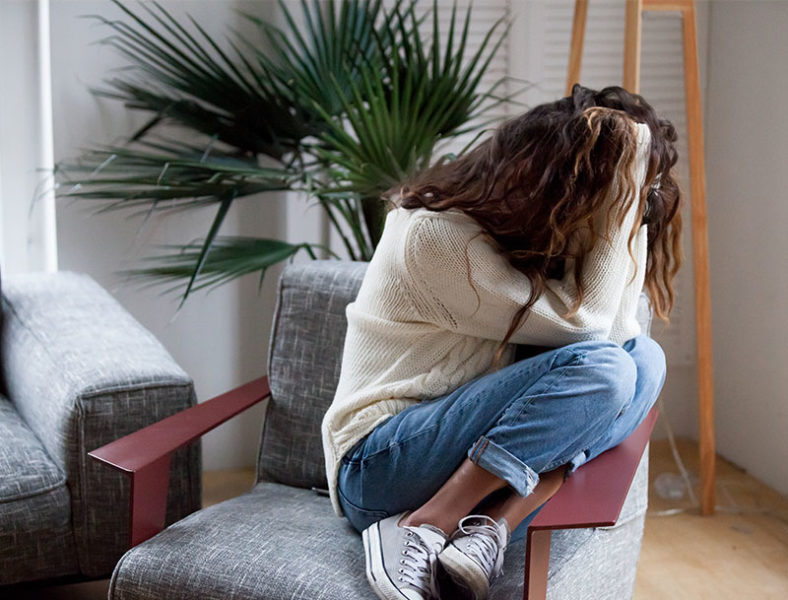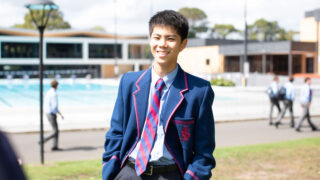Is your teenager constantly stressed with school or their circle of friends? The teen years are a period of our lives characterised by higher academic and social expectations. Teenagers have more autonomy and less structure both at school and at home, and less teacher oversight when it comes to completing assignments and keeping up with coursework. They also face increased expectations socially and academically during this time – and in Hong Kong this pressure can be highly intensified, and can lead to increased anxiety.
So how can we help our teens who may be suffering from stress? We chat to DR QURATULAIN ZAIDI of MindNLife about how to tackle the issue of teen anxiety.
Anxiety Disorders
Feeling generally anxious from time to time is normal. Anxiety is a normal reaction to stress, and sometimes it can be helpful for dealing with tense or overwhelming situations. Most people worry about something, after all – finishing an assignment or doing an exam, for example – but once the difficult situation is over, the body feels better and the mind calms down. It’s when these feelings of anxiety interfere with normal daily living that the issue needs to be addressed.
Anxiety disorders are the most common mental illness globally, affecting around 40 million adults in the United States alone. And about 18 percent of the population. According to the National Institute of Mental Health, approximately 25 percent of 13- to 18-year-olds have an anxiety disorder. And just under six percent have a severe anxiety disorder. Research shows that untreated teens are at a higher risk of performing poorly in school, missing out on important social experiences, and engaging in substance abuse. Unfortunately, anxiety disorders also often co-occur with other disorders such as depression, eating disorders and attention-deficit/hyperactivity disorder (ADHD).
I see many patients (adults, teens and children as young as five) who suffer from anxiety. It’s the constant feeling that something bad is going to happen. Anxious teens strive for perfection, and worry excessively about many things; peer relationships, not being good enough or smart enough, and not being able to get into the university of their choice are very common themes. They seek constant approval and reassurance from others and this can negatively impact their friendships and family relationships.
Some of the symptoms
The symptoms of anxiety start out the same as just feeling generally anxious but get worse or last longer than they should. They include:
- Feeling frightened, nervous or panicky all the time
- Difficulty sleeping
- Low appetite
- Lack of concentration
- Feeling tired and irritable
- Palpitations – when your heart feels like it’s racing
- Dry mouth
- Trembling
- Feeling faint
- Stomach cramps and/or diarrhoea
How to cope
Understanding the cause
Understanding the science behind the body’s response to anxiety is often helpful, and recognising that once the anxiety pathway (the amygdala) has been activated, the rational brain (prefrontal cortex) usually goes “offline”. Teens can learn to recognise their own stress signals and triggers; they can then use strategies such as deep breathing, meditating or listening to calming music to help. It’s important for them to remember, too, that avoiding the issue of anxiety will not make the anxiety go away. So, even though it seems hard to face situations that are difficult, facing the fear amounts to taking charge of the anxiety rather than letting it control their life.
Every time a teenager is able to face a fearful situation and realise it wasn’t as bad as they anticipated (this is true most of the time) it actually develops a new neural pathway in the brain. This pathway is underpinned by the positive understanding that the world is essentially a good and safe place, not one where disaster lurks around every corner.
Coping strategies
What else can help you cope with anxiety as a teenage? Paying attention to healthy eating and ensuring your body is well rested by getting at least nine hours of sleep per night are both very important. Progressive muscle relaxation and regular exercise are also helpful in combatting the build-up of stress-related molecules in the body. And you shouldn’t forget to give your minds a break from the constant demands of technology. So, put those devices away for a set number of hours per day. Engage with real life and real people, go out for a walk, or read a book.
If anxiety does take over, even after utilising these various coping strategies, remember to take charge of your thinking and remind yourself:
- This is just anxiety.
- It can’t harm me.
- It will pass.
- I can cope with this.
When to seek professional help
Lastly, if the anxiety is persistent for over a month, it may be time to seek professional help, to learn strategies to manage it better so it doesn’t interfere with your daily living and activities. More than 40 randomised trials support the efficacy of Cognitive Behaviour Therapy (CBT) for the treatment of anxiety disorders in children and adolescents. Anxiety disorders are both common and highly treatable. The earlier an anxiety disorder is assessed, diagnosed and addressed, the more likely it is that treatment will be successful.
Dr Zaidi is a British-registered clinical psychologist who works in private practice in Central, and as a mental health consultant for a number of international schools. 6347 9955 | mindnlife.com
See more in our Teens section:
Social media and your child’s mental health
Boys want to look good, too!
Expats guide to international schools in Hong Kong
This article first appeared in the April/May 2019 issue of Expat Living magazine. Subscribe now so you never miss an issue.







